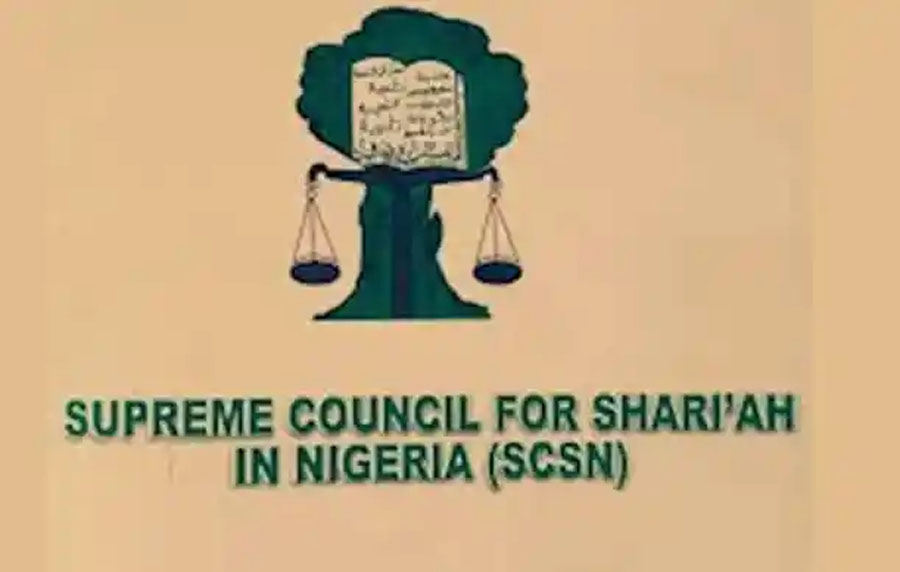metro
Sachet water ban will lead to job losses – Lagos residents

Sachet water ban will lead to job losses – Lagos residents
Some Lagos residents have expressed concerns over the proposed move by the state government to ban single-use plastics (SUPs) and sachet water saying that it will lead to loss of jobs and disrupt economic activities.
The residents in separate interviews with the News Agency of Nigeria (NAN) on Sunday appealed to the state government to have a rethink over the proposed ban.
NAN reports that Mr Tokunbo Wahab, the Commissioner for the Environment and Water Resources, during a stakeholders’ workshop recently announced plans to ban SUPs and sachet water by January 2025.
Wahab said the policy is designed to establish sustainable guidelines for managing plastic waste while protecting public health and the environment.
He noted that styrofoam and single-use plastics take centuries to degrade, making the ban essential for environmental protection.
Wahab said the Lagos State Government was working closely with the private sector organisations to provide alternatives for styrofoam containers and other SUPs, while supporting research into new technological solutions.
NAN, however, reports that the proposed ban has sent shockwaves to the manufacturing and retail sectors, sparking fears of job losses, economic disruption, and uncertainty among stakeholders.
The ban has also raised concerns among water vendors who rely heavily on sachet water for their livelihood.
A Lagos resident and Sales Manager, Aremson Water Ltd., Ojo First Gate, Mr Akinyemi Bolaji, told NAN that the ban would make a lot of people unemployed.
“I am more particular about employment. The ban will not favour anyone, and it will make thousands of people lose their source of livelihood.
“On the other hand, what is the reason for the ban? People are consuming it on a daily basis, so is there any way the government is putting it out to give people clean water?
READ ALSO:
- Inside Israel’s combat zone in southern Lebanon
- Ukrainian journalist, 27, who chronicled Russian occupation dies in prison
- Cleric predicts gang-up plot to unseat Senate President Akpabio
“There should be other alternatives to curb the whole recycling issue,” he said.
While commending the government for the initiative, he, however, appealed for a better alternative to ensure the ban won’t affect the jobs of people in the water business.
“The government should help in educating the people on proper disposal properly as it’s written on the body of the plastic.
“Eradicating all these factories that produce the SUPs is not the best way. It’s a solution in one aspect and hazardous in another,” he said.
He advised the government to put a bin on every bus stop and house so as to curb the problem of single-use plastic blocking the drainage.
A retail water seller, Mrs Vera Osiyemi, told NAN that sachet water had been the best way of curbing cholera.
“I don’t think it is going to be possible. This is what everyone consumes. If the government bans it, does it mean we are going back to our old way of selling iced water?”
“The solution is to create an awareness, educate the people on how to dispose it properly and provide bins. Just like we had in the old days, it was in every house,” Osiyemi said.
Another seller, Mrs Afusat Ajibola, told NAN that the ban might not be possible because the main idea was to get clean water.
“So, if the government eventually bans it, it will result in a serious cholera outbreak.
“It is not possible. The government can ban it, but it cannot work. There is no way we are going back to selling iced water,” she said.
She added that the government might have a way of controlling those that consume it.
“It is to provide for bins and continue to keep Lagos clean,” she said.
Another retailer, Miss Joy Okafor, said she was not aware of the proposed ban.
“Even if there would be a ban, we should understand that it’s not just the single use and sachet nylon water that block the drainage.
“There are other causes like disposables as well.
“Government knows what is best, but in this case, it is not possible. Will they provide clean pipe borne water for streets and houses?
“What will be the next step of the government? The only thing I’m seeing is more of unemployment, because people sell it to make ends meet,” she said.
READ ALSO:
She said the government should look for a means to curb the problem at disposing it and not banning it.
Mr Chinedu Eze, a water distributor, said he was uncertain about what would happen next after the ban.
“I have been in the business for years. Now, I’m uncertain about the future. This isn’t just about access to water, it’s about the survival for thousands of us,” he said.
Another Lagos resident simply identified as Mummy Boma , a street vendor, told NAN that the proposed ban would affect her livelihood.
“Selling pure water helps me feed my children and send them to school. Bottled water is too expensive to buy or sell in bulk.
“The government should rather enforce stricter regulations on sachet water producers to ensure better quality control and hygiene standards,” she said.
A resident and medical doctor, Dr Olufemi Adeyemi, told NAN that Lagosians could lose access to potable and affordable water due to the ban.
“Though some sachet water contain contaminated water due to lack of regulation, however, the government needs to provide alternative safe water sources before any ban is enforced.
“Without proper preparation, banning ‘pure water’ could leave millions of Nigerians without a reliable and affordable water option.
“Instead of an outright ban, the government could invest in public water systems to ensure a reliable supply of clean water in both urban and rural areas,” he said.
He added that this would reduce the population’s dependence on sachet water.
Sachet water ban will lead to job losses – Lagos residents
metro
Deadlock at National Assembly as House Snubs Electoral Act Bill Meeting on E-Transmission Clause

Deadlock at National Assembly as House Snubs Electoral Act Bill Meeting on E-Transmission Clause
Tension escalated at the National Assembly on Monday after members of the House of Representatives failed to attend a joint conference committee meeting with the Senate aimed at harmonising the Electoral Act (Repeal and Re-enactment) Bill, 2026. The absence of House lawmakers stalled efforts to reconcile differences over Clause 60(3), which governs the electronic transmission of election results.
The session, initially scheduled for 11:00 a.m., did not proceed as senators waited in vain for their House counterparts. Later, senators reconvened at the office of Senator Simon Lalong, chairman of the Senate Committee on Electoral Matters, but the stalemate persisted. A second attempt in the afternoon also failed, with only a few lawmakers present, leaving the harmonisation process in limbo.
At the core of the dispute is the mandatory electronic transmission of results from polling units. The House version requires real-time uploading of results to INEC’s Result Viewing Portal (IREV), while the Senate adopted a more cautious approach, allowing electronic transmission but making the physical result sheet (Form EC8A) the primary document where network challenges occur. Senators cited concerns about uneven internet coverage and power supply gaps, stressing the need for a pragmatic approach nationwide.
The disagreement comes less than a year before the February 20, 2027 general elections, rekindling debates over electoral credibility. Memories of the 2023 presidential election, when delays in IREV uploads triggered widespread criticism, legal disputes, and political tension, remain fresh. Analysts warn that failure to harmonise the law could undermine public confidence in future elections.
READ ALSO:
- Maikori Accuses Ex‑Governor El‑Rufai of Persecution Over 2017 Tweet
- Shari’ah Council Defends Kwankwaso, Rejects US “Christian Genocide” Claims
- Hundreds of Millions in Goods Destroyed as Protests Against Northerners Erupt in Rivers
Telecom operators have insisted that infrastructure is sufficient to support electronic transmission. The Association of Licensed Telecom Operators of Nigeria (ALTON) highlighted that even basic 2G networks can reliably transmit results, while broadband penetration now exceeds 50 percent, with over 109 million active subscriptions nationwide. Experts say that transparency, system testing, and public trust will be crucial for the success of reforms ahead of 2027.
Civil society groups, including Situation Room Nigeria and Action Aid, have protested outside the National Assembly, urging lawmakers to adopt mandatory real-time electronic transmission to ensure transparency and minimise the risk of election manipulation. Youth and reform organisations also stress that allowing manual fallback options could reintroduce vulnerabilities that past reforms sought to eliminate.
The impasse highlights the importance of legal clarity and political will in safeguarding Nigeria’s electoral integrity. Observers note that beyond infrastructure, the cooperation of lawmakers, INEC, and security agencies will determine whether the next general election restores public trust or exacerbates existing doubts.
Deadlock at National Assembly as House Snubs Electoral Act Bill Meeting on E-Transmission Clause
metro
Maikori Accuses Ex‑Governor El‑Rufai of Persecution Over 2017 Tweet

Maikori Accuses Ex‑Governor El‑Rufai of Persecution Over 2017 Tweet
Audu Maikori, Founder and Chairman of Chocolate City Entertainment, has accused former Nasir El‑Rufai of persecuting him in connection with his 2017 social media post, saying that the handling of the matter — including his arrest and subsequent fallout — extended far beyond what was warranted and reflected a broader pattern of intimidation against critics. Maikori spoke on Arise Television’s Prime Time programme on Monday, using his right of reply after El‑Rufai addressed the controversy in a separate appearance the previous Friday. He acknowledged the post that triggered the crisis, explained how he retracted it when he realised it was false, and insisted that he was singled out and pursued long after the matter was legally closed. “It’s not personal. It is about setting the record straight and getting the facts right,” Maikori said. “Ex‑governor El‑Rufai has a penchant for recreating stories. Everything he said is untrue. And it’s important for posterity that the record reflects the truth.”
On February 18, 2017, Maikori was detained by operatives of the Department of State Services (DSS) following tweets in which he claimed that five students of the College of Education, Gidan Waya had been killed in violence in Southern Kaduna. The post generated widespread attention and controversy, leading to criticism from El‑Rufai, then governor of Kaduna State, who said the claims were unverified, potentially inflammatory, and could aggravate security tensions if left unchecked. El‑Rufai argued at the time that publishing unverified figures could heighten distrust among communities and jeopardise lives and property — a position consistent with broader government efforts to curb misinformation during periods of insecurity. The DSS subsequently detained Maikori and others perceived to be fuelling the narrative.
READ ALSO:
- Shari’ah Council Defends Kwankwaso, Rejects US “Christian Genocide” Claims
- Hundreds of Millions in Goods Destroyed as Protests Against Northerners Erupt in Rivers
- Naira Maintains Stability Against Dollar as CBN FX Measures Keep Markets Calm
Maikori said that as soon as he realised the information was inaccurate, he acted to correct the record. He and his driver went to the first police station available in Lekki, Lagos, where he filed a formal statement explaining that the original claim was based on inaccurate information from the driver, who later confessed to having made up the story for personal reasons. Maikori said he contacted the Attorney General of Kaduna State, Amina Sijuade, to notify her of his intention to retract the post. Maikori said a detailed retraction was published on 4 February 2017, including an apology not only to El‑Rufai but to all those affected.
Despite this, Maikori alleges that El‑Rufai did not let the matter rest. He said that after he was released — following the driver’s confession and the DSS investigation — El‑Rufai continued to publicly associate him with violence, alleging in other forums that Maikori’s tweet was linked to deaths in the region and hinting at prosecution. Maikori described this as unwarranted interference beyond the authority of a state governor, noting that the police discharged him after clarifying the facts.
Maikori argued that the courts subsequently confirmed that his arrest had been unlawful. Both the Federal High Court and the Court of Appeal reportedly awarded him damages, ruling against the legality of his detention. He said El‑Rufai then took the matter to the Supreme Court, where the case is still pending, with Maikori confident of prevailing. He said any damages awarded “will be used to support journalists and others who lack access to legal representation.”
Maikori challenged what he called a double standard in how El‑Rufai handled public information. He cited a 2019 incident in Kaduna’s Kajuru Local Government Area, where the ex‑governor publicly released casualty figures that were later challenged by security authorities as unverified. Maikori said that despite warnings from the state’s Police Commissioner, El‑Rufai repeated and amplified the figures without issuing a retraction or apology, even as others were detained. He also referred to the arrest of nine elders of the Adara community, whom he said were jailed for extended periods without prompt bail or clear evidence — illustrating, in his view, a pattern of targeting critics and communities without adequate due process.
He also cited additional cases under El‑Rufai’s administration, including the prolonged detention of Charles Steve Kefferson and alleged harassment of his own lawyer, Gloria Ballas, whom he said faced intimidation compelling her to seek court protection.
While defending his motivations, Maikori criticised what he called El‑Rufai’s leadership approach, contrasting it with the record of the current Kaduna State Governor, Uba Sani, whom he said had restored peace and improved security within a short period compared with the previous eight years. Maikori suggested that El‑Rufai’s refusal to acknowledge mistakes stemmed partly from political disappointment after failing to secure a ministerial appointment and losing political influence. He described this pattern of behaviour — defending positions even when disproven — as “sour grapes,” arguing that it reflected an unwillingness to separate personal ambition from public duty.
Maikori confirmed that he is now a member of the ruling All Progressives Congress (APC) but noted that the dispute dates back to when both he and El‑Rufai belonged to the same party, suggesting the issue transcends partisan labels and speaks to broader concerns about leadership, accountability, and free expression.
Maikori Accuses Ex‑Governor El‑Rufai of Persecution Over 2017 Tweet
metro
Shari’ah Council Defends Kwankwaso, Rejects US “Christian Genocide” Claims

Shari’ah Council Defends Kwankwaso, Rejects US “Christian Genocide” Claims
The Supreme Council for Shari’ah in Nigeria (SCSN) has defended Senator Rabiu Musa Kwankwaso while strongly rejecting recent claims from the United States alleging a “Christian genocide” in Nigeria. The council described such narratives as misleading, harmful, and capable of undermining national unity.
In a statement signed by Nafiu Baba Ahmad, Secretary‑General of the SCSN, the council said accusations that Christians are systematically targeted in Nigeria do not reflect the country’s legal framework or security realities. The council also defended Kwankwaso, a former governor of Kano State, against claims linking him to religious persecution, emphasizing that the allegations are politically and culturally distorted.
The SCSN highlighted that insecurity and violent incidents in Nigeria affect all citizens, regardless of religious affiliation. It warned that external narratives framing the country’s security challenges as a religious genocide could misrepresent facts, exacerbate tensions, and negatively impact interfaith coexistence.
READ ALSO:
- Hundreds of Millions in Goods Destroyed as Protests Against Northerners Erupt in Rivers
- Naira Maintains Stability Against Dollar as CBN FX Measures Keep Markets Calm
- 28 Wedding Guests Die in Separate Road, Boat Accidents in Enugu, Kebbi
This position aligns with previous statements from Nigerian government officials who have rejected similar claims, stressing that terrorism, banditry, and communal clashes impact Christians, Muslims, and other groups alike, and that the government remains committed to protecting religious freedom for all citizens under the constitution.
Analysts note that the US claims, including legislative proposals calling for sanctions against Nigerian officials, oversimplify Nigeria’s complex security situation. They argue such narratives risk fueling religious divisions and undermining efforts at peace and national cohesion.
The SCSN reaffirmed its commitment to justice, dialogue, and national harmony, urging Nigerians and the international community to rely on verified data rather than politically motivated claims. The council emphasized that maintaining religious tolerance and unity remains crucial for Nigeria’s stability and development.
Shari’ah Council Defends Kwankwaso, Rejects US “Christian Genocide” Claims
-

 Education2 days ago
Education2 days agoCheck Your Name: UNILORIN Releases Updated NELFUND Refund List for 2024/2025 Students
-

 News2 days ago
News2 days agoOsogbo Sons and Daughters Mark 5th Anniversary with Awards, Political Undertones
-

 metro23 hours ago
metro23 hours agoUS Freezes Assets of Eight Nigerians Over Boko Haram, ISIL, Cybercrime Links
-

 metro3 days ago
metro3 days agoWoman Arrested Over Murder of Nigerian E-Hailing Driver in South Africa
-

 metro3 days ago
metro3 days agoBoko Haram Terrorists Release Video of 176 Abducted Kwara Residents
-

 News2 days ago
News2 days agoAfenifere Calls for Immediate Take-Off of State Police as Terror Threats Rise in Yorubaland
-

 metro1 day ago
metro1 day agoTerror in Lagos Traffic: Cutlass Gang Unleashes Mayhem on Mile 12–Ketu Road
-

 metro2 days ago
metro2 days agoUS Military Boosts Support for Nigeria’s Fight Against Insurgency With Ammunition, Troop







